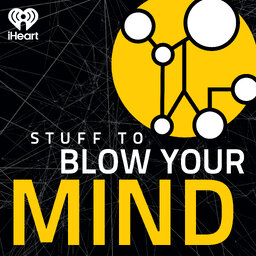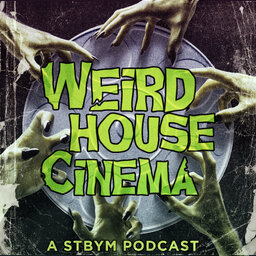Psychedelics Playlist: The Manifested Mind, Part 4
What are psychedelics? How have these substances influenced human minds and culture? What exactly do they invoke in the brain and how could a renaissance of scientific study into their properties improve our lives? In this series of Stuff to Blow Your Mind episodes, Robert and Joe explore the world of entheogens.
Learn more about your ad-choices at https://www.iheartpodcastnetwork.com
In 1 playlist(s)
Stuff To Blow Your Mind
Deep in the back of your mind, you’ve always had the feeling that there’s something strange about re…Social links
Follow podcast
Recent clips

Crab Bag, Part 3: The Crab is a Lonely Hunter
55:55

Weirdhouse Cinema Rewind: La Loba (1965)
1:30:07

From the Vault: Mystery Cults, Part 4
1:00:23
 Stuff To Blow Your Mind
Stuff To Blow Your Mind